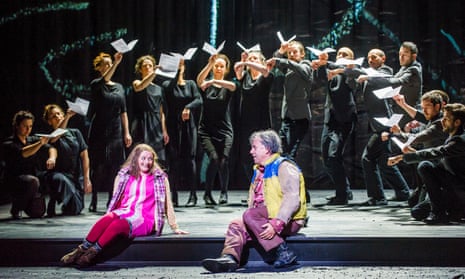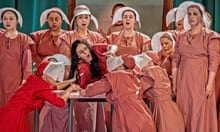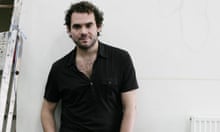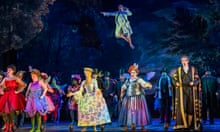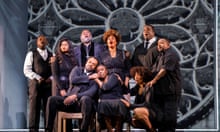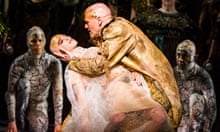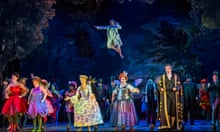It is probably stating the obvious to say that Mozart’s The Magic Flute, currently being performed by English National Opera, is about the magical power of music. The title is rather a giveaway. Volumes of musical analysis, psychological tracts and neurological experiments have tried to explain this power, but in the end it remains a mystery. Fortunately. Music can soothe and excite, make public the deeply private, or inspire and unite the heart and mind within a single second. Despite being completely unintelligible, it is a language that we all can understand.
Yet there are millions of people who think that a Mozart opera is not for them. As disappointing as this is for those of us involved, we should accept that it is, in part, our own doing. When, nearly 500 years ago, Galileo’s father, the lutenist, composer and theorist Vincenzo Galilei, first suggested that the emotional depth of words could be greatly enhanced by setting them to music, I suspect he did not realise what a force he was unleashing. But we have diluted that force. We put opera on a pedestal, and erected barriers to protect it. If we want to protect it now, we need to tear those barriers down.
I do not know anyone in opera who does not wish for prejudiced preconceptions to be destroyed, and many spend a great deal of time, talent and thought trying to do so. English National Opera was in fact created specifically for this purpose. Its raison d’être is to make opera more accessible. But what accessibility means now is not the same as when Lilian Baylis first formed the company 85 years ago. What we do, where, when and for whom, has to be fundamentally reconsidered if we are to try to catch up with the change our audience has undergone since. Accessibility has to mean more than availability.

The Arts Council’s recent decision to cut ENO’s subsidy by £5m a year and the financial crisis that that has created demands that we rethink and reassess what we do and how we do it. How we respond to this challenge will determine our future success. I believe a fresh approach will fail if it compromises the company’s experience and expertise. Without the commitment, sense of ownership, love, and pride of the people who are the essence of ENO artistically, we have no right to ask for any curiosity, loyalty, or passion from our audience. ENO’s identity as a team defines its past and will be its greatest asset in protecting its future. Cutting the core of the company – musicians and technicians alike - would damage it irreparably.
When people come to our home at the Coliseum they do so on the whole with an expectation that what they see will surprise them, and a certainty that what they hear will be of the highest standard. Bold adventure on stage needs musical conviction behind it, while any meaningful musical achievement relies on a brilliant staging to fully express itself. Take away one, and the other will fall too.
ENO needs to raise its income to solve its financial problems. We need to make savings that do not directly affect our ability to express what we do. With creativity and imagination, I believe that is possible. We must increase our audience, not diminish our work. We should be proud of our greatest strengths and promote them with confidence. We need to innovate to survive, not reduce.
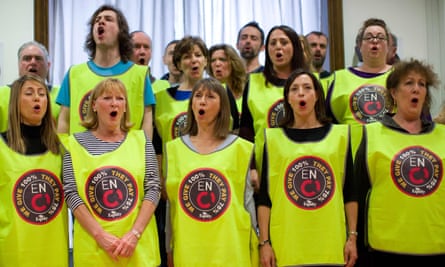
As the search for a new artistic leader intensifies, ENO has to choose someone who can radically reimagine the possibilities of how the company can bring back its old audience, keep its existing one, and reach out to a new one. But this person needs to know the difference between cost and value, and must appreciate that without the priceless qualities of the company’s regular forces, no amount of audience development can succeed. Everyone appreciates quality. Everyone deserves it. To propose anything less would betray the art form, the audience and the taxpayer.
The Magic Flute was first performed by a company of singing actors who worked together often. Mozart had broken with tradition to compose an opera for an everyday audience in a language they could all understand. He showed that the highest quality of art can have the broadest public appeal. For Mozart, there was no contradiction between sophistication and entertainment.
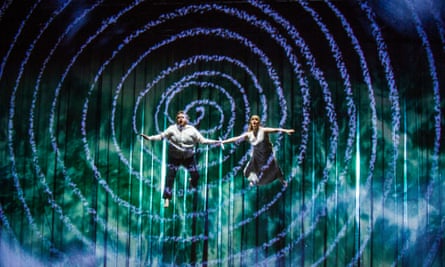
English National Opera’s current production is as interesting to the aficionado as it is welcoming to the opera novice. No one would feel they needed to belong to an opera club to enjoy it. It is a showcase for the groundbreaking possibilities of a people’s opera, for the extraordinary qualities of those in our company, and for the magnificent Coliseum itself. It is a celebration of what teamwork can bring, and of the magical power of music to bring us together, remind us that we are human, and enrich our lives for the better.
